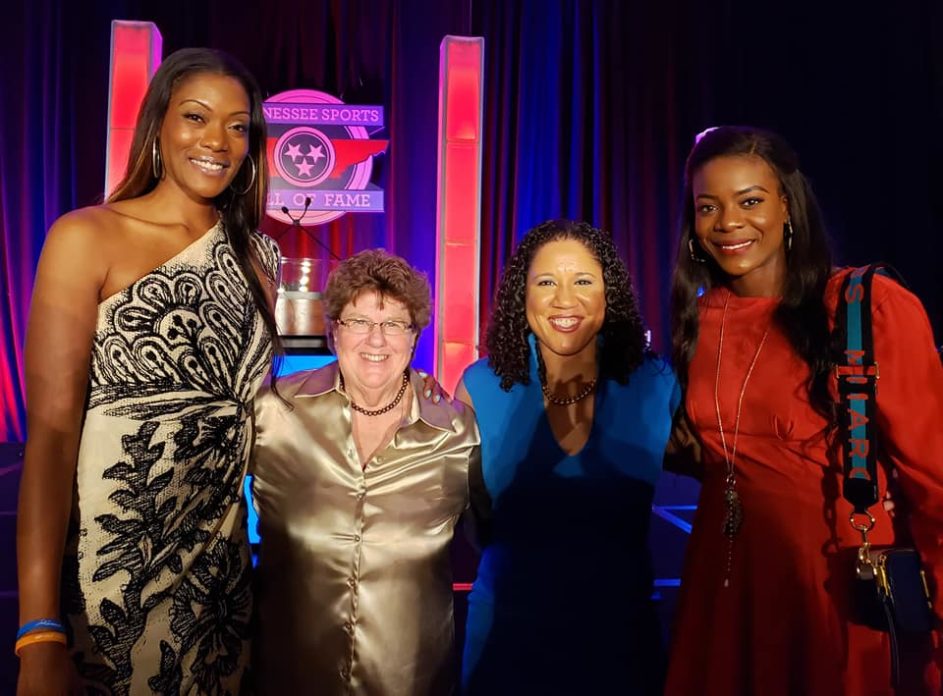(Editor’s Note: We asked Betty Bean to update a 2013 story that we had somewhat arrogantly titled “Dismantling the House that Pat Built.” It is here: Dismantling Bean, of course, wrote a whole new story. It fills in some history and is a damn sight more optimistic than the original. Bean says Pat Summitt’s legacy is not a logo or a staff – it’s every young woman that she inspired to be their best.)
2013 was a hard year for Tennessee women’s basketball – not because the team came up short in the Elite Eight after rallying from a 20-point second half deficit to lose 86-78; and not because first-year head coach Holly Warlick finished with a 27-8 record, although that was borderline lackluster for a fan base accustomed to 30-win seasons and cutting down nets.
But every year since Pat Summitt announced that she had early-onset Alzheimer’s Disease in 2011 had been hard for anybody who knew and cared about her. And Dave Hart’s cavalier dismantling of women’s athletics did nothing to soothe the discontent.
Things would get worse over the next few years.
Debby Jennings, Summitt’s longtime public information director, was the first to go – primarily because she clashed with Hart, who presided over the merging of men’s and women’s athletics. She and Hart did not see eye to eye about much of anything, beginning with his treatment of women, including her boss. Jennings was forced out of her job in 2012, and in 2014, she settled a discrimination and retaliation suit for $320,000. She had worked for Pat Summitt for 35 years, since she was an undergraduate student at UT.
Jenny Moshak was head of women’s sports medicine before Hart took over. She left the program of her own accord, but made it plain that she found working conditions intolerable. In 2012, she emphasized the point by joining with women’s strength coaches Heather Mason and Collin Schlosser in a lawsuit against UT for gender discrimination and retaliation. In 2016, they were awarded $750,000 in damages.
But that’s not all. Moshak, Mason and Schlosser got to keep the money they were awarded, because the American Association of University Women’s Advocacy Fund paid their attorney fees.
And Jennings?
She’s the director of public relations for SHEEX, high-end bedding invented by former Tennessee point guard Michelle “Spinderella” Brooke-Marciniac and Susan Walvius back when they coached the women’s basketball team at the University of South Carolina (SHEEX products are made of the same high performance fabric as basketball uniforms). Jennings also serves as Brooke-Marciniak’s administrative assistant.
And she’s happy. She’s working on a SHEEX Cares project that allows people to nominate “Front Line Heroes” in the pandemic crisis. The winners get “care packages” from the company.
“We’re sending them out to the UPS driver working 16-hour days, to grocery clerks stocking shelves – people on the front lines. We’re sending them the gift of sleep when they have a chance to get some sleep.”
She’s also a regular at UT sporting events – something she didn’t know would happen during those first hard years when her lawsuit started hitting the headlines.
“All of a sudden the university you’ve loved all your life doesn’t love you back,” she said. “It felt like going through a divorce and a death and all kinds of things at the same time. But not once did I stop loving the University of Tennessee, and I’m so thankful that I’ve been welcomed back by so many. Those friendships, they stand for something. Those are real friendships.”
Does she still go to games?
“Absolutely. I get to yell at the officials now; get to be a fan. I find myself yelling stuff I would have heard Pat say – and people sitting around me, they look at me and say, ‘Yeah! What she said!’
“I’ve been a Vol for 47 years of my life – ever since my mom and dad dropped me off in 1973 and never picked me up.”
Betty Bean is a veteran reporter for Knox and Sevier counties.

